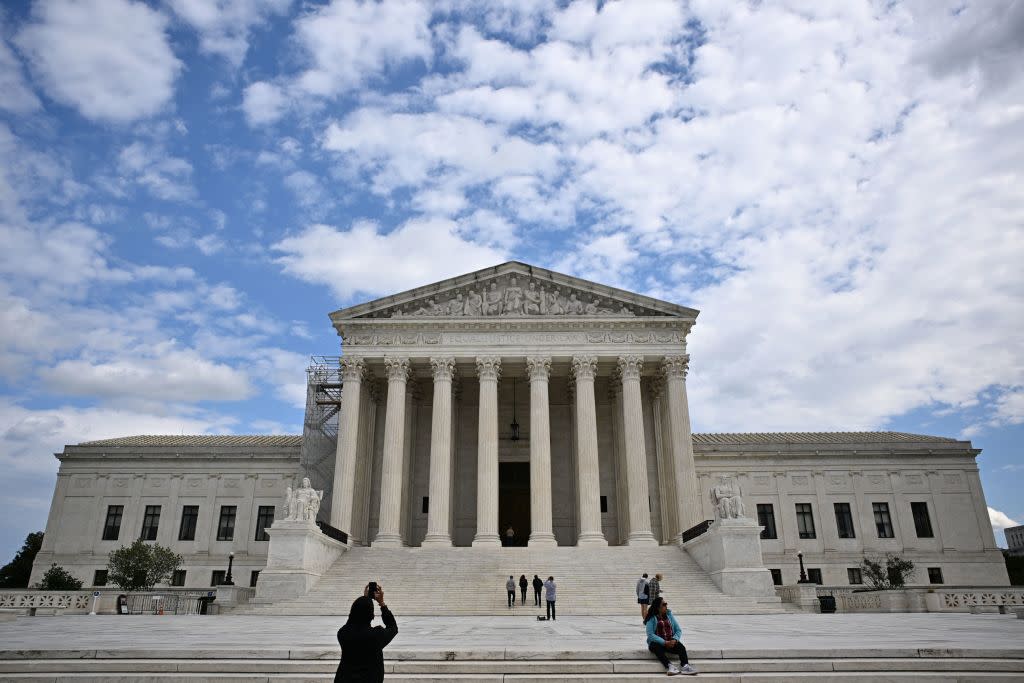How a Supreme Court case on gerrymandering could decide control of Congress in 2024

The Supreme Court, back in session for its 2023-24 term, heard oral arguments Oct. 11 in Alexander v. South Carolina State Conference of the NAACP. While the case has not yet generated many headlines outside of South Carolina, the Supreme Court's ruling in the matter could have ripple effects across the United States.
The case is based on a lawsuit filed by civil rights groups alleging that South Carolina unlawfully gerrymandered its congressional map to disenfranchise the state's Black population.
Gerrymandering has already been thrust into the national spotlight ahead of the 2024 elections, thanks in large part to the Supreme Court's ruling against impermissibly drawn congressional districts in Alabama earlier this year. Its decision in Alexander v. South Carolina State Conference of the NAACP next summer could help determine which party controls the U.S. House in the next Congress. Why is South Carolina being sued, and what is the high court likely to decide?
What is the crux of the case?
Civil rights groups led by the ACLU and South Carolina's chapter of the NAACP sued the state in 2022 over what the ACLU called "a racially gerrymandered congressional map." The main focus of the lawsuit is the 1st Congressional District, which covers most of South Carolina's most populous city, Charleston. The civil rights groups are asking the Supreme Court to uphold a lower court ruling that struck down the gerrymandered map as unconstitutional.
The issue began in 2018 when a Democratic congressman won the district for the first time in nearly 40 years. Rep. Nancy Mace (R-S.C.) flipped the seat back to the GOP in the 2020 election, and to prevent the district from being reclaimed by the Democrats, Republican "mapmakers moved hundreds of thousands of South Carolinians to different congressional districts," the ACLU said in a press release. This new map likely accomplishes the Republican goal to "create a stronger GOP tilt in the district" or at the very least "make the seat more competitive," CNN reported.
During the Supreme Court's oral arguments, lawyers for the civil rights groups noted that in the 1st District, "mapmakers sorted more than 30,000 Black Charlestonians based on their race, removing 11 of the 12 precincts with the highest Black voting-age populations." As a result, these 30,000 people — who make up 62% of Charleston's Black population — were shifted "from the swing 1st District to the safely Democratic seat of longtime Rep. James Clyburn, one of the most powerful House Democrats," Mother Jones reported. Clyburn's district is currently the only one in the state held by a Democrat.
South Carolina Republicans have maintained that the new map is not based on race. The state's legislature "had no reason to and did not use a racial target. It used political data to pursue its political goals," lawyers for the state said during oral arguments. They added that South Carolina could be exposed "to potential racial gerrymandering liability whenever they decline to make majority-white, modestly majority Republican districts majority-Democratic" if the map was struck down. This Supreme Court has ruled that partisan gerrymanders are permissible.
What could the Supreme Court's decision mean?
While the court's ruling won't be released for months, its conservative majority "appeared sympathetic to South Carolina's defense that it was difficult to disentangle race and politics," Mother Jones noted. Chief Justice John Roberts — often the conservative swing vote — told the civil rights groups they faced a "high burden" in trying to prove their case.
The conservative court went against type when it struck down the gerrymandered map in Alabama. If the court upholds South Carolina's new map, as many legal scholars predict they will, the fallout wouldn't be contained to South Carolina.
Given the razor-thin margins in Congress, "any congressional seat that is up for grabs becomes a potential pickup for Democrats in their quest to retake the House," The New Republic noted. If the Supreme Court upholds the map, that quest becomes significantly harder.
Michael B. Moore, a Democrat running against Mace, told The New Republic that South Carolina's 1st District "could be the seat that helps Democrats regain control of the House again." But that's probably true only if the Supreme Court surprises everyone once again.

